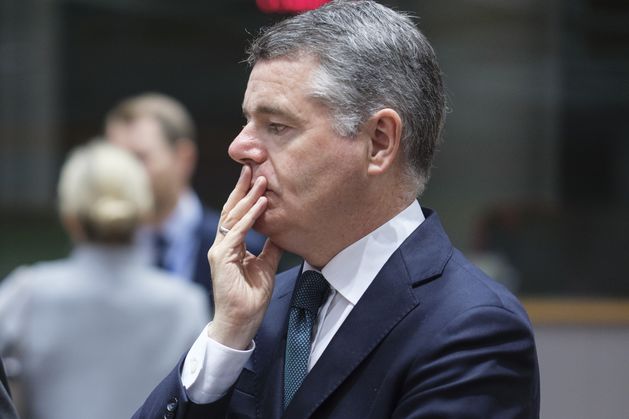Public debt stood at €218bn at the end of last year, which was €15bn higher than before the pandemic and the extensive borrowing the Government did to pay for Covid-19 supports for businesses and workers.
The Department expects that the national debt will be down to €216bn by the end of next year, which would be the equivalent of every person in the State owing €39,000.
Most of the debt is locked in at fixed rates of interest, and the average maturity profile is long, which gives Ireland some short-term protection against the current volatility in the bond market. France, the UK and Germany have all been paying higher levels of interest on their borrowings of late.
The average rate of interest on Irish debt is now 1.5pc, the report says. About 70pc of the debt carries an interest rate below 2pc.
“The effective rate of interest is set to rise in the years ahead,” it warns. “This is because bonds that were issued at near-zero rates during the pandemic will need to be rolled over. This re-financing will, almost certainly, be undertaken at a higher-than-original cost.”
Just over a quarter of medium to long-term debt instruments are due to mature at the end of the decade. When they are rolled over, the cost is likely to increase, which will mean the Exchequer has to pay more to service the national debt.
The share of Ireland’s total revenue that was gobbled up by interest payments rose steeply during the financial crisis, peaking at 12.5pc in 2013. That has now declined to 2.5pc, the lowest level ever, which is a reflection of the extra revenue the Government is now taking in, particularly in corporation tax.
Publishing the report, Finance Minister Paschal Donohoe said that structural aspects of Ireland’s debt have insulated the public finances so far from the rise in interest rates after the pandemic, but “this will not last forever”.
He warned that “a significant portion of public debt will be exposed to higher interest rates in the coming years”.
Adding that the underlying fiscal position is “much less benign than the headline figures suggest”, Mr Donohoe said that structural changes in the economy, such as demographics, will have adverse consequences for debt and the public finances.
“For this reason, the Government will target headline budgetary surpluses and will continue to capitalise the Future Ireland Fund and the Infrastructure, Climate and Nature Fund to help mitigate the risks to the public finances posed by these challenges.”
Speaking on RTE’s Morning Ireland, Mr Donohoe added that the Government is going to “change gear” on spending, and needs to “pull it down”, particularly as inflation is lower.
In the euro area as a whole, the debt-income ratio is higher than before the pandemic in just over two-thirds of member states, many of which are still running large deficits, which is putting sovereign debt markets under pressure.
The debt ratio increased in the EU as a whole last year, the first time this had happened since the financial crisis, excluding the first year of the pandemic.

